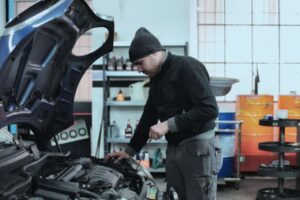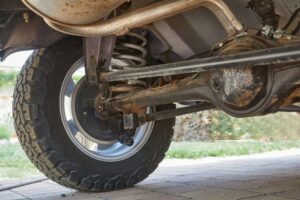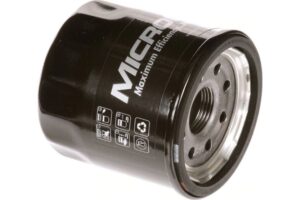With gas pump prices increasing uncontrollably, many are thinking about using regular gas for their premium gas cars. But will that not damage your engine? Can you mix premium and regular gas? What happens if you do?
Yes, you can undoubtedly mix premium and regular gas if you have to. Some drivers have done this, and nothing happened to their cars. According to The Drive, what will happen is that combining premium and regular fuel will produce a gas that has an octane level that is somewhere in between. Your vehicle will still survive, The Drive says.
Mixing these two, however, is not usually recommended. If you are forced to do it because of circumstances, rest assured that it will only have a minimal impact on your vehicle’s performance. Premium gas contains additives designed for engines of higher performance, but you can still mix it with regular gas without any problems.
Read on to learn more about whether you can mix premium with regular gas and what can happen if you do it.
Can You Mix Premium and Regular Gas?

Can you mix gas grades? You can undoubtedly mix premium with regular gas if you need to because of circumstances. Some drivers have done this thing at some point in their lives.
According to The Drive, a site that provides the latest news on car tech, vehicle reviews, and global auto news, you will get fuel with an octane level somewhere between the octane levels of the two original fuels.
However, experts do not recommend this practice, although it will not affect your vehicle’s performance. Your car won’t experience any problem by mixing them. Sure, premium gas has additives designed for higher-performance engines.
But you can still mix it with regular gas if needed. Also, if you inadvertently fill up your premium gas car with regular gas, your vehicle’s ECU will adjust the engine timing and performance to work well with the lower-octane gasoline.
What Happens If You Mix Premium and Regular Gas?
Automotive Experts
Most automotive experts believe that filling up a premium gas car with a lower level of octane fuel won’t damage the engine. They say if you mistakenly mix regular fuel with your premium gas car, your car’s ECU will adjust the performance and the engine timing so it can still run.
Honda Dealer
A Honda dealer says that nothing significant will happen to your engine. Car owners believe that filling up their fuel tank with premium gas will clean out part of their regular gas car’s fuel system. However, car experts say that this is a myth.
New York Times
Their reason is that an engine made to burn gas of 87 octane level does not run the risk of detonating, so it will not benefit from using premium gas. The New York Times reported that the extra five or more dollars spent on premium gas per tank are wasted in such cars.
Fuel Express
Use Gas Other Than Manufacturer Approved Gas
Fuel Express, a company that offers fuel cards and fuel card management services, also lends its thoughts on mixing premium with regular gas. It reported that a car owner could fill their tank with regular gas even if the vehicle manufacturer recommends premium gas.
They added that just because the manufacturer recommends premium doesn’t mean that’s the only fuel you can use. Fuel Express said you could also use regular gas as easily without damaging the engine.
Good Idea to Top Off Your Fuel Tank with the Car Manufacturer’s Recommendation
While you can mix these two types of fuel, it is still a good idea to top off your fuel tank with what is recommended by the car manufacturer as soon as you can.
But if you are worried that your engine will develop a knock, you can add the required amount of regular or premium fuel to get your car to the next gas station.
Higher Octane Rating If You’re Using Regular Gas
So, if you mix regular gas with premium gas, you will get fuel with an octane rating of a combination of the two. The resultant fuel rating will be about mid-grade. If you are using regular gas, it will have a higher octane rating.
Lower Octane Rating If You’re Using Premium Gas
But if you are regularly using premium gas, the octane level of the combination will be a bit lower. Whatever you do, it won’t damage your engine.
Octane Booster Gets Your Fuel to the Right Octane Level
Most gas stations are now selling octane boosters. They are good to use if you don’t want to take chances with your engine. You can buy this booster, and if you need to add regular gas to your premium gas tank, add this booster to get your fuel up to the right octane level.
Edmunds.com
Edmunds.com also has something to say about this topic. It says that due to advanced technology. A car can still run without any issue even if it is fueled with gas other than the manufacturer-recommended gas.
It won’t result in any way damage to the engine.
But the performance of the vehicle will suffer slightly. For instance, it might be a bit slower, from zero to 60 miles per hour. However, the ordinary driver won’t even notice it. Perhaps putting regular gas in a premium gas vehicle could damage some engine parts in the past.
But today, automotive engines have control systems that can effectively tune them on the fly. So, drivers have flexibility in their fuel choice.
Will Mixing Premium and Regular Gas Mess up Your Car?
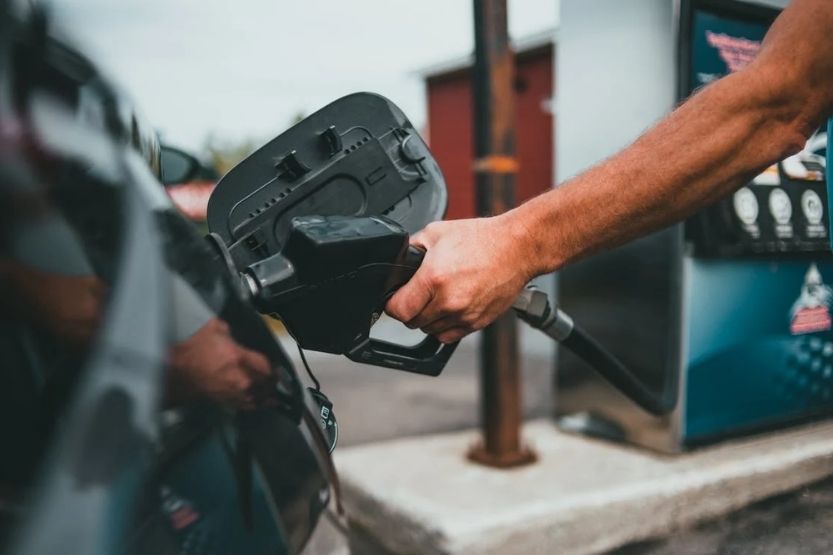
There’s another side of the coin on this topic. Some sources say that you can’t mix regular gas with premium gas.
Service Center of Toyota
One of them is the Service Center of Toyota. As reported by 11Alive, an NBC news source, this service center of Toyota says that you can’t put regular gas in a car designed for premium gas.
Toyotas’ Service Center claims that unleaded gas contains lower octane levels that could cause ‘knocking’ that can damage the vehicle’s motor. Mixing the two fuels will also void the vehicle warranty, they say.
The Drive
Result in Higher Octane Rating
However, The Drive says that the mixture of regular gas and premium gas will result in a higher octane rating. So, a vehicle will less likely experience ‘mistime combustion,’ which is responsible for creating the engine knock sound in the first place.
Prevent Engine Knock
In other words, the higher octane premium gas will help prevent engine knock. It’s different with older cars. The Drive says that using 87 octane level gas (or premium gas) for such cars will almost always cause the engine to produce the knocking sound.
Newer Car Models Can Handle Octane Level Variations
However, newer car models have modern equipment to handle the octane level variations. So, if you incorrectly put lower-octane fuel on your premium gas vehicle, your vehicle’s ECU will adjust its performance and engine timing. It will make your vehicle work with the regular gas.
Do Not Do This Regularly
However, you should only do this when you need to. The Drive said you should not do it regularly. It is only good when you can’t find premium gas stations. Running a cheaper fuel for your vehicle for long periods is not good for your engine.
Again, can you mix premium and regular gas? You can mix premium and regular gas, resulting in a solution with an octane rating between the individual fuel’s octane levels.
Difference Between Premium and Regular Gas
While you can add regular gas to premium gas, they are different from each other. There is one fundamental thing that sets them apart.
Different Octane Ratings
The primary element separating premium gas from regular gas is their octane ratings. Premium gas has an octane that can range from 91 to 93. The actual octane rating depends on where you get the premium gas. There are some places where its octane rating is more than 93.
On the other hand, regular gas has an octane rating of 87. As you can see, it is lower than the octane rating of premium gas. The efficient performance of the engine is also dependent on the octane level of the fuel that you put into it.
Fuels with Higher Octane Ratings Ensure Less Chance of Mistimed Combustion
Fuels with higher octane ratings ensure fewer chances of combustion happening at the wrong time. This is called mistimed combustion or pre-ignition. So, with premium gas, the chances of mistimed combustion are slim.
Effect of Mistimed Combustion
Mistimed combustion or pre-ignition causes the knocking or pinging sound of the engine, referred to as ‘engine knock.’ As you can see, if you want to prevent engine knock, you have to use fuel with higher octane ratings.
This is partly why car owners of regular gas cars tend to use premium gas on their vehicles – to prevent engine knock. If you occasionally hear the knock, your engine is not going bad. But if you always hear the engine knock, then that’s the time you have to worry.
Does Premium Gas Offer Better Mileage than Regular Gas?
Premium gas delivers just about the same mileage as regular gas in better fuel mileage. You will not experience any noticeable improvement if you use premium gasoline if your car uses regular gasoline.
Better fuel economy is not dependent exactly on the fuel’s octane rating. It is more tied to using the correct octane level recommended by the manufacturer for your vehicle.
If your vehicle is designed to use regular gas, you cannot justify using more expensive premium fuel for your car to improve its fuel economy.
Stick to the Manufacturer’s Recommendation
If your vehicle manufacturer says you should only use premium fuel, you should stick to this recommendation. There are several reasons why this is their recommendation. You may have a turbocharged engine. It requires fuels with higher octane ratings to function properly.
Perhaps, you have a high-performance car. Its engine operates with tight tolerances. So, you can’t use regular gas to run it. You should stick to higher octane fuels that can help it deliver the high-performance levels it is designed for.
What Happens If I Use a Combination of Regular and Premium Gas for My Premium Gas Car?
Many years back, when you mix regular gas with premium gas on a premium gas car, an engine knock would result. You will hear the engine knock right after pouring in regular gas while still at the gas station.
Thankfully, today, that won’t happen anymore. If, by mistake, you poured regular gas into your premium gas car, your car’s ECU will automatically adjust the engine timing and performance. In other words, your car will still run with no problems with regular gas.
However, do not do this repeatedly, even if regular gas is cheaper. Your car was made to run with higher octane fuels. So, you need to stick with what is designed for your car. You should also consider the pros and cons of premium gas.
You should only use regular gas during emergencies where you run out of premium gas, and the only gas available is regular gas.
What Happens If I Mix Premium with Regular for My Regular Gas Car?
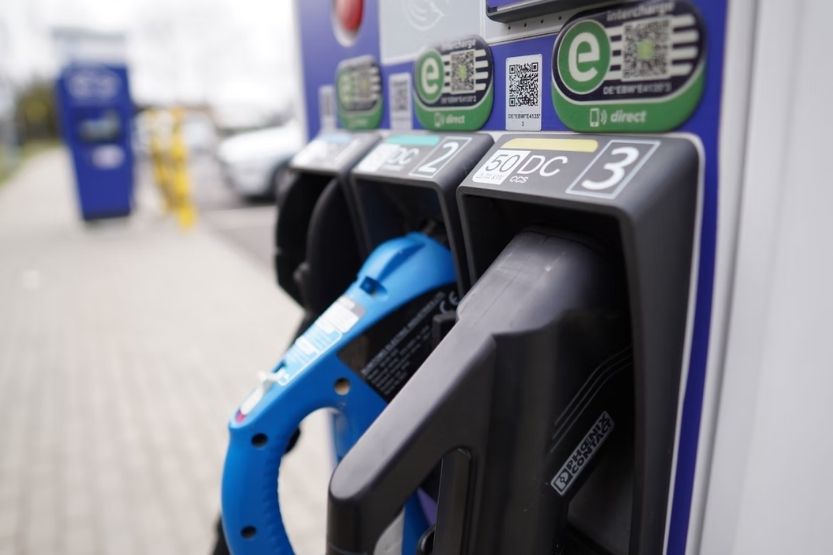
Some people assume that its performance will improve by mixing premium with regular fuel on their gas cars. Is there a truth in this? Let’s look at some of the facts of this matter:
No Significant Benefit
The Federal Trade Commission says that there is no benefit if you use a higher octane fuel for a car designed only for lower octane fuel, such as regular gas. The car will not perform any better or any faster than before. However, the premium fuel costs more.
In some instances, however, you may experience your car running a little faster and getting better mileage if you mix premium gas with regular gas in your regular gas cars. But those occasions will be very few and far between.
Premium Gas Can Work Well With Turbo-Charged and Heavy Vehicles
Perhaps you have a car that uses regular gasoline, but it is heavy, turbo-charged, or both. Using a high octane fuel will give you some benefits if this is your case. The reason is that your engine has a high compression ratio. Not using premium fuel could cause an engine knock.
Additionally, if your car has already accumulated high mileage, its performance can improve if you will use premium gas, even if it’s a regular gas car.
Fuel Octane Ratings Vary from State to State
Fuel octane ratings vary from state to state. What is premium gas? Some states consider gasoline to be premium if its octane rating is 92. Other states consider gasoline a premium when its octane rating is only 90.
Three Fuel Grades in Most US Gas Stations
There are three grades of fuel in most US gas stations. These three fuel grades are:
- Regular grade – with an octane rating of 87
- Mid-grade – with an octane rating of 89
- Premium-grade – with an octane rating of 91 to 93
In other words, probably, the premium gas that you asked the gas station to put into your tank might not be a high octane fuel at all, but only a mid-grade fuel.
Frequently Asked Questions
So that you can remember the points that I have discussed in this article, I have listed here the answers to the often asked questions about mixing premium with regular gas:
Can I Mix Premium with Regular Gas in My Car?
Yes, you can. Many drivers have done this during emergencies. Combining these two gasoline types will get fuel with an octane level somewhere in the middle of their original octane ratings. This fuel will get you to the next pump station to fill her up with the normal fuel you are using.
What Can Happen If I Mix Premium with Regular Gas?
Don’t think that the fuel mixture will damage your engine. The impact on your engine and vehicle will be minimal. However, you are advised to do this only during emergencies where you are already running out of gas. You should not do it regularly.
What If I Put Regular Gas in My Premium Gas Car?
Nothing drastic will happen if you pour in regular gas by mistake in your premium gas car. ECUs or Electronic Control Units control modern cars.
If you have a modern car, its ECU will adjust the engine’s timing and performance based on the fuel mixture you have just poured into it. So, you will not experience any drastic change in your car.
What Type of Fuel Is Right for a Turbocharged Car?
In general, manufacturers of turbocharged vehicles recommend using premium gasoline on them. So, if this is your car type, you will be better off using premium fuel. To be sure, check with your car operator’s manual.
In Closing: What Happens If I Mix Premium and Regular Gas?
You can mix premium and regular without any repercussions on the engine. Some drivers have done this exact thing when running out of gas.
The Drive says that you will get their average octane level if you combine regular with premium gas. Your vehicle will still survive the experience, The Drive says.
It is not recommended to mix these two types of gasses. But if you are forced to do it because of circumstances, nothing wrong will happen to your vehicle.
One of the things that can happen is the combined gas you will be using will have a lower octane level. It will not affect your car’s performance.
Read next:

![Mixing Oil Weights [Can You Mix Oils of Different Viscosity and Weight?] mixing oil weights](https://roadsumo.com/wp-content/uploads/2021/05/mixing-oil-weights-150x150.jpeg)
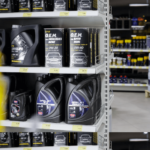
![Is Shell Gas Good for Your Vehicle? [Shell Gas Review] is shell gas good for your vehicle](https://roadsumo.com/wp-content/uploads/2022/03/is-Shell-gas-good-for-your-vehicle-150x150.jpg)

![Driving With a Bad Purge Valve [What Happens? Signs and Symptoms] driving with a bad purge valve](https://roadsumo.com/wp-content/uploads/2022/02/driving-with-a-bad-purge-valve-150x150.jpg)

